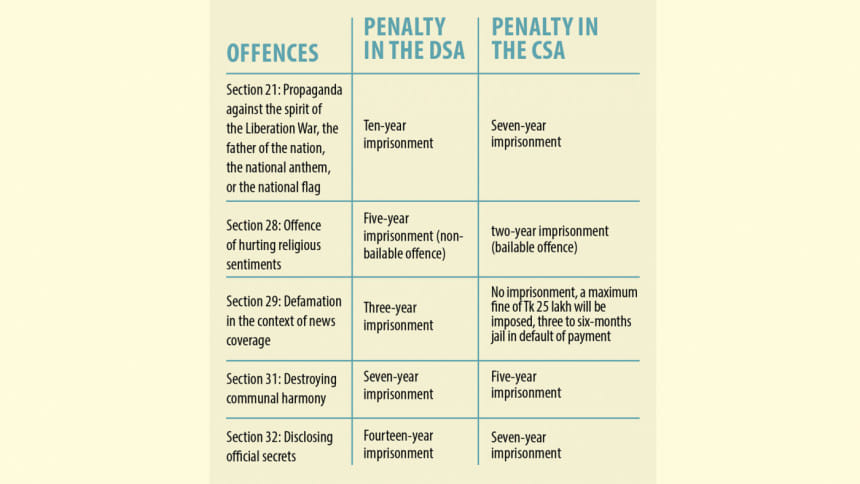What does the proposed Cyber Security Act offer?

The government is all set to replace the Digital Security Act 2018 (DSA) with the Cyber Security Act 2023 (CSA), which offer some changes in some parts of the current law. The cabinet approved this replacement in principle on 7 August.

The DSA underscores quite a wide range of offences as cognisable and non-bailable, which is one of the most widely criticised features of the Act. In the CSA, the main differences are that some non-bailable offences under the DSA have been made bailable— punishments for some offences have been reduced— fines have been increased—and the provision for additional punishment for repeated offences has been omitted. On the contrary, sections 8 and 43 have remain unchanged. Section 8 of the DSA, which empowered the director-general of Digital Security Agency and law enforcement agencies to remove or block digital content through the Bangladesh Telecommunication Regulatory Commission (BTRC), has been retained in the CSA. Similarly, the police's authority to search and arrest without a warrant under section 43 of the DSA has been kept intact under section 42 of the CSA, which is deeply worrying.
The most significant changes under the CSA are shown in the chart for a clearer picture-
The author is an official contributor at the Law & Our Rights, The Daily Star.

 For all latest news, follow The Daily Star's Google News channel.
For all latest news, follow The Daily Star's Google News channel. 



Comments